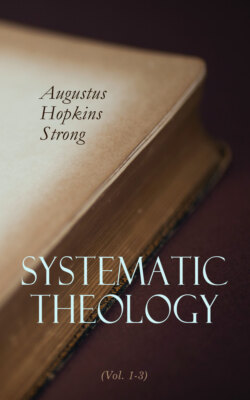Читать книгу Systematic Theology (Vol. 1-3) - Augustus Hopkins Strong - Страница 16
На сайте Литреса книга снята с продажи.
1. Derivation.
Оглавление(a) The derivation from religāre, “to bind back” (man to God), is negatived by the authority of Cicero and of the best modern etymologists; by the difficulty, on this hypothesis, of explaining such forms as religio, religens; and by the necessity, in that case, of presupposing a fuller knowledge of sin and redemption than was common to the ancient world.
(b) The more correct derivation is from relegĕre, “to go over again,” “carefully to ponder.” Its original meaning is therefore “reverent observance” (of duties due to the gods).
For advocacy of the derivation of religio, as meaning “binding duty,” from religāre, see Lange, Dogmatik, 1:185–196. This derivation was first proposed by Lactantius, Inst. Div., 4:28, a Christian writer. To meet the objection that the form religio seems derived from a verb of the third conjugation, Lange cites rebellio, from rebellāre, and optio, from optāre. But we reply that these verbs of the first conjugation, like many others, are probably derived from obsolete verbs of the third conjugation. For the derivation favored in the text, see Curtius, Griechische Etymologie, 5te Aufl., 364; Fick, Vergl. Wörterb. der indoger. Spr., 2:227; Vanicek, Gr.-Lat. Etym. Wörterb., 2:829; Andrews, Latin Lexicon, in voce; Nitzsch, System of Christ. Doctrine, 7; Van Oosterzee, Dogmatics, 75–77; Philippi, Glaubenslehre, 1:6; Kahnis, Dogmatik, 3:18; Menzies, History of Religion, 11; Max Müller, Natural Religion, lect. 2.
